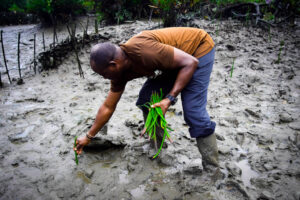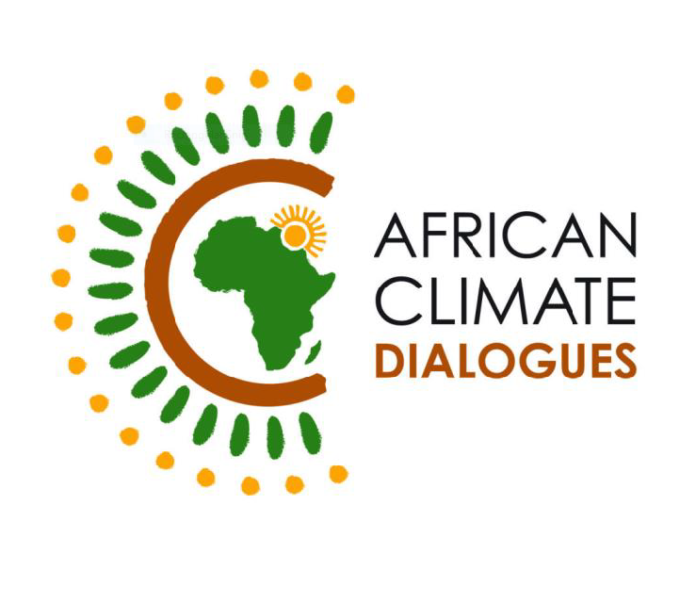Today, by way of preparation for he COP27, we bring you the second part of the African Climate Dialogues which give an African perspective on issues that will be discussed at the meeting in Sharm el Sheikh, Egypt. below are the main points that emerged during the dialogues – these indicate the outcomes that African countries would like to see coming from COP27.
From July to September 2022, five sessions of the African Climate Dialogues were held:
- False Climate Solutions and the Congo Basin – July 19, 2022
- Food Systems, agriculture and adaptation – August 10, 2022
- Climate Finance – August 30, 2022
- Loss and Damage and Adaptation – September 8, 2022
- Climate-Induced Migration and Displacement – September 15, 2022
Each of these invite-only sessions were hosted by organisations and individuals from the Catholic Church and secular civil society actors. Each session saw a diverse list of stakeholders and experts come together to discuss and reflect on their experience, with a special emphasis on the moral and spiritual dimensions of the climate crisis and what action is needed at COP27. Participants were invited to respond to expert presentations, dialogue with each other and contribute to a shared output. All of the comments and presentations from each session were then collated and distilled into newsletters, which can be accessed via the links beneath. This document, the communiqué, is a distillation of each of these newsletters – including only the key messages from each session.
An interpretivist approach was taken to synthesise and distill the information from the sessions and to generate key conclusions. This approach differs from positivist approaches of enquiry, which traditionally attempt to convert oral contributions to comparative units. Instead, our approach sought to discern meaning and arrive at conclusions based on experience, consensus and reflective conversation. These outputs have been agreed to by the African Climate Dialogues steering committee, made up of key event organisers, and therefore represent an uncontested summary of event outputs.
KEY MESSAGES FROM THE AFRICAN CLIMATE DIALOGUES
- False Climate Solutions and the Congo Basin
- Transform Africa’s fossil fuel energy system to one that is powered by renewable energy sources in order to fairly and equitably provide energy for people and promote energy sovereignty, all while protecting the inherent rights of communities and ecosystems.
- Promote peace and regional integration in Africa, especially in the Congo Basin, by protecting ecosystems, regenerate Lake Chad basin, respecting human rights, establishing and enforcing binding regulations and the rule of law, and sensitising the public on climate change impacts.
- Abandon all false solutions including net-zero pledges, failed emissions trading and offsetting schemes, nature-based solutions and unfounded technological optimism (i.e., geoengineering).
- Transition to new sources of energy that are locally produced, cheap, accessible and benefit local and Indigenous communities in Africa.
- Establish and restore community-based management of natural resources like forests, rangelands and fishing grounds and abide by established legal and ethical principles such as the rights to free, prior, and informed consent, fair compensation, and a clean and healthy environment.
➢ Read the full report from the dialogue on False Climate Solutions and The Congo Basin
False-Climate-Solutions-and-the-Congo-Basin-NEWSLETTER.pdf (cidse.org)
- Food Systems, Agriculture and Adaptation
- Recognise that agroecology puts farmers and vulnerable communities at the centre, pro-planet approach to food production underpinned by a philosophy of harmony among human and other-than-human beings, and that a transition to agroecology can help mitigate and adapt to climate change.
- Establish a democratic mechanism for the governance of agriculture, land and food systems under the UNFCCC.
- Make agroecology a prominent theme at COP27 and in any follow-up decision of the Koronivia Joint Work on Agriculture, as it offers clear co-benefits when addressing food insecurity and the impacts of climate change.
- Move away from the myopic focus on efficiency and profit maximisation in the food system and instead focus on human rights, nutrition, food justice, seed and food sovereignty and sustainable farming practices.
- Allocate more resources to support smallholders, family farmers and indigenous people, including extension services based on agroecological methods.
➢ Read the full report from the session on Food Systems, Agriculture and Adaptation
NEWSLETTER-Food-systems-ACD-FINAL.pdf (cidse.org)
- Climate Finance

- The Global North must pay the ecological debt it owes to the Global South.
- Provide new, accessible, adequate, predictable and additional climate finance from public sources that supports the needs of people and local communities.
- Improve and simplify access to existing climate finance funding mechanisms so that local communities and civil society organisations can more easily use and benefit from these funds.
- Provide climate finance in the form of grants rather than loans and increase funding for adaptation.
- Improve transparency and tracking of climate finance disbursement to strengthen democratic checks and balances and improve governance.
- Respectfully utilise Indigenous knowledge to design interventions that are locally-driven and context specific.
➢ Read the full report from the session on Climate Finance
- Loss and Damage
- Recognise loss and damage as the third pillar of responding to climate change alongside mitigation and adaptation.
- Establish a loss and damage finance facility at COP27 funded by penalties levied against private and public sector polluters based on well-defined measurements including from public sources.
- Pay special attention to the issue of non-economic loss and damage and take immediate actions to avert the impending loss of heritage, cultures and languages.
- National Governments in climate vulnerable countries should immediately draft loss and damage strategies and assessment schemes for submission to the UNFCCC.
- Faith leaders, including the Holy See, senior Church leaders, and the Bishops of Africa, should speak out in support of civil society on the issue of loss and damage at COP27.
➢ Read the full report from the session on Loss and Damage
Draft ACD Loss and Damage Newsletter.docx (cidse.org)
- Climate-Induced Migration and Displacement
- The strong interconnection between climate, migration, conflict and food security requires urgent and greater awareness, comprehensive policies, better nexus between humanitarian and sustainable development aid, and adequate financing.
- The conflict and tension between climate-induced migration-displaced people and hosting communities require local policy, finance and action in sharing common resources.
- As transboundary migration increases over time, climate migration policy needs to be recognised as a human rights issue and an adaptation measure.
- Among the most affected community, young people should be given more opportunities to support their capacity to preserve cultural heritage and roots.
- Climate-induced migration and displacements from losses and damage are a justice issue and should be seen as part of the discussion on Loss and Damage.
- Finance for Loss and Damage must include climate-induced migration and displacement.
- Climate-induced migration and displacement exacerbate the underlying socio-economic and developmental crises.
- Job creation and tree planting initiatives, according to agroecology and agroforestry principles, should prevent environmental degradation and community exclusion/migration.
- NGOs and Catholic institutions should call for greater solidarity around these issues and should equip communities with legal assistance and tools to provide policy input into various governance processes.
- To have a stronger voice, the actors involved in climate-induced migration and displacements should collaborate and build synergies.
➢ Read the full report from the session on Climate-Induced Migration and Displacement
https://www.cidse.org/wp-content/uploads/2022/10/ACD-Climate-Migration-Displacement-Newsletter-final.pdf
For general inquiries about the African Climate dialogues, please contact: Lydia Machaka, Climate Justice and Energy Officer, CIDSE ([email protected])


